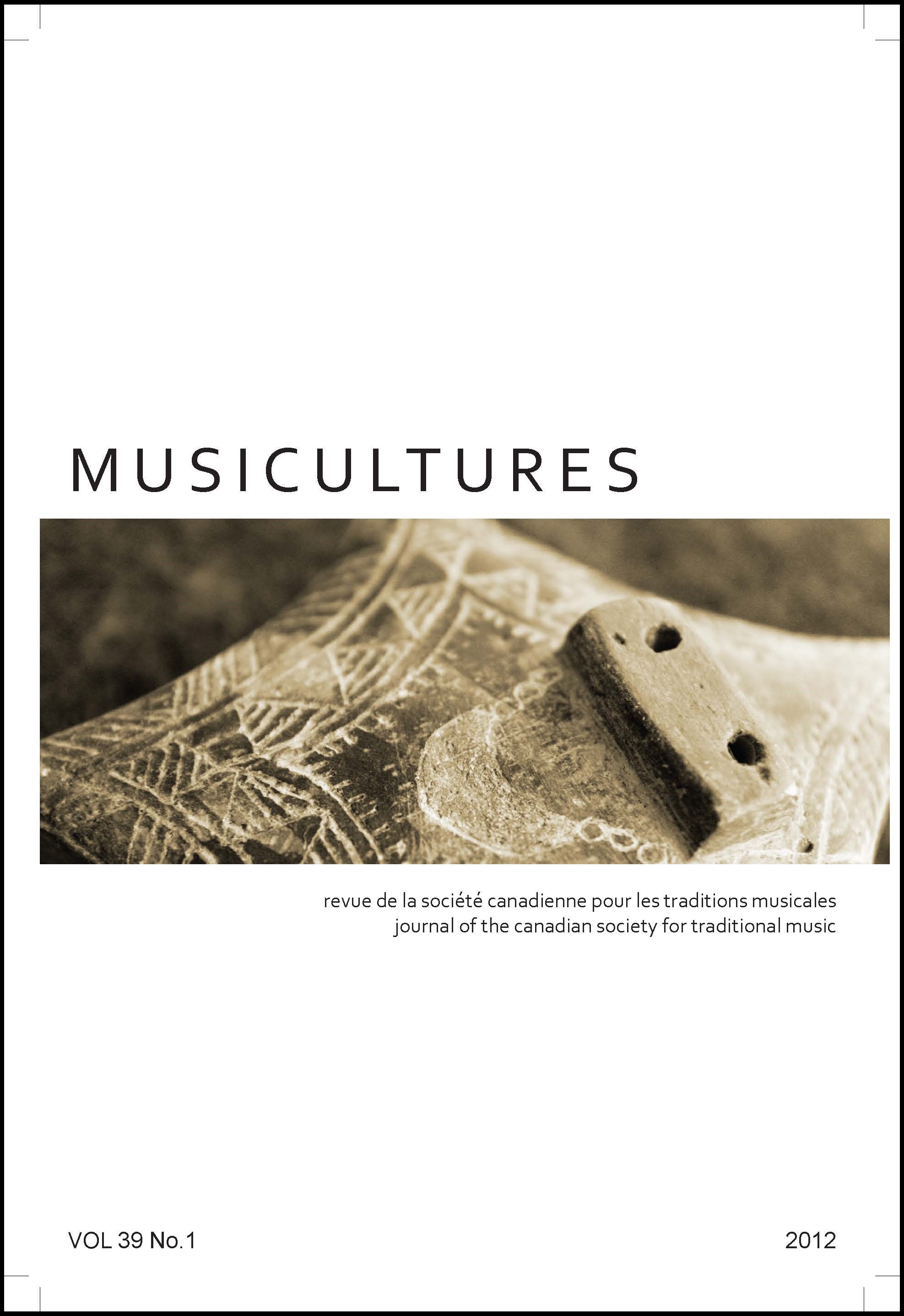Abstract
In this paper, I look at a variety of works by classical Native American composers as they apply to dichotomies of classical versus traditional, oral versus notated, Indian versus European, indigenous versus colonial, as well as the continued discussion on how scholarly research can reflect indigenous scholarship incorporating several theories and stylistic choices that several modern ethnomusicologists use as they help reclaim and reflect the indigenous viewpoint. Employing a concept of twinness taken from the Mohawk creation story as well as work on complementarity and duality by ethnomusicologists Diamond, Cronk, von Rosen and Browner, I extend the metaphor as I employ the contributions of the Delorias, Little Bear, Smith and Wilson to look at how we may negotiate the borders between indigenous and empirical scholarship, old versus new theories, and classical versus native concepts as revealed in the compositions themselves. Using fieldwork, analysis and questionnaires, this paper addresses the question of musical borders reflected in contemporary classical Native American music as I consider the work and interviews of composers Chacon (Navajo Dine), Archambault (Kichespirini), Nakai (Navajo/Ute), Davids (Mohican) , and Quincy (Choctaw). In addition, I reflexively look at my own compositions and performance experience as an ethnomusicologist, performer and composer of Mohawk descent.- The author retains copyright over the work.
- The author grants the journal owner (The Canadian Society for Traditional Music / La Société canadienne pour les traditions musicales) an exclusive license to publish the work.
- The author may post a pre-print or post-print version of the work (see definitions below) on a personal website for up to twelve months after the work is published in MUSICultures. After twelve months, the pre-print version must be replaced with the published version.
- The author may deposit the published PDF of the work in a non-commercial online repository twelve months after the work is published in MUSICultures, or any time thereafter.
- Any such deposit must include a link to the work on the MUSICultures website, e.g., https://journals.lib.unb.ca/index.php/MC/article/view/19996
A pre-print is a work-in-progress—a contribution not yet accepted, or perhaps even submitted, to MUSICultures.
A post-print is the version of a contribution after peer review and acceptance by MUSICultures, with revisions completed.
The published version is the PDF file of a contribution as it appears in MUSICultures.
Please note that academia.edu and ResearchGate.com are both for-profit repositories; authors may not deposit the published PDF of the work in these repositories until after the journal’s embargo period.
For permission to reprint or translate material from MUSICultures, please contact Heather Sparling, General Editor of MUSICultures (heather_sparling@cbu.ca).

